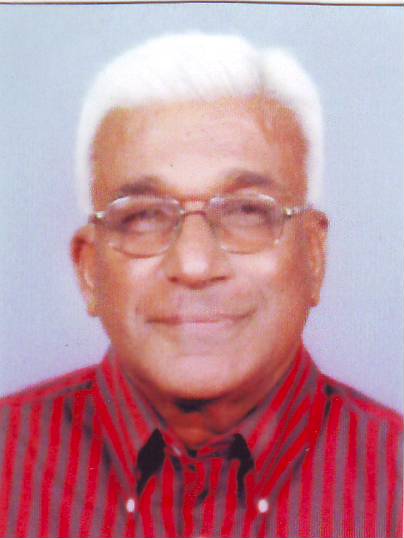 One of the notable Lankan writers in Tamil is S Ponnuthurai who is also known as Es Po by his initials. One of his creative writing is a short fiction titled Sadangu. This has been translated into English by Prof Chelva Kanaganayakam of the University of Toronto in Canada. The English title of the book is 'Ritual'. The book is published by The Three Wheeler Press - The Gratiaen Trust, c/o Marga Institute, Jayanthi Mawatha, Etul Kotte, Kotte. Prof Walter Perera, the Chairman of the Trust, the translator, Prof Chelva Kanaganayakm and the writer S Ponnuthurai have given the background regarding the publication. Es Po lives Chennai and alternatively in Sydney. He is a phenomenal figure in contemporary Tamil Literature. He is both a creative writer and a critic. He is deemed a controversial figure in literary circles especially when he takes the role of a critic, but as a creative writer he has shown his talents as an innovative, imaginative and realistic writer with a unique literary style.
One of the notable Lankan writers in Tamil is S Ponnuthurai who is also known as Es Po by his initials. One of his creative writing is a short fiction titled Sadangu. This has been translated into English by Prof Chelva Kanaganayakam of the University of Toronto in Canada. The English title of the book is 'Ritual'. The book is published by The Three Wheeler Press - The Gratiaen Trust, c/o Marga Institute, Jayanthi Mawatha, Etul Kotte, Kotte. Prof Walter Perera, the Chairman of the Trust, the translator, Prof Chelva Kanaganayakm and the writer S Ponnuthurai have given the background regarding the publication. Es Po lives Chennai and alternatively in Sydney. He is a phenomenal figure in contemporary Tamil Literature. He is both a creative writer and a critic. He is deemed a controversial figure in literary circles especially when he takes the role of a critic, but as a creative writer he has shown his talents as an innovative, imaginative and realistic writer with a unique literary style.
The book is very interesting as it shows what the mentality of the northern man had been, his frugal living, his hard work in Colombo separated from his family of five children and the loving wife besides giving the social and cultural atmosphere that was prevailing in the 1960s.
The short fiction is a commentary on both the conjugal life of a frustrated lower middle class clerical servant and the typical social behaviour of the people in the northern peninsula.
Es Po is generally believed to be a writer on sex themes. But that is not totally correct. He has written spicy stories which are not lurid, but his writing is essentially that of a social and psychological realist.
The main characters are Senthilnatan, his wife Annalakshmi and her mother.
The blurb in the back cover gives succinctly what the plot of the novel is. I quote:
"Ritual takes place over a period of six days in the 1960s when a clerical servant in Colombo decides to go to Point Pedro to visit his family. He attends to household chores, plays with his children, visits his neigbours, listens to gossip about the people around, gets increasingly frustrated when all his attempts to sleep with his wife fail, and finally returns to Colombo to continue his humdrum life."
Ritual is about a world that is neither rural nor urban.
It depicts the middle class as they really were - hard working, frugal, ambitious, self-centred and generous.
The characters in Ritual believe in and and conform to tradition, but they also need the modernity of Colombo to be upwardly mobile.
The lives and aspirations of the people are simple, but in their simplicity there is also something very attractive and wholesome. The author's objective is to show how ordinary lives can be, in their own way, quite extraordinary."
Es Po had to struggle hard to be reckoned due to his social rank as a member of the down trodden community in the north. Hence we could understand his anger and rebelling nature. Educating himself he became an orator, writer, publisher, and teacher in both Lanka and Nigeria and proved that he could not be put down.
While the story is heavily bent on the struggle he and his family undergo, there is also sweet yearning for intimacy between him and his desirable wife. His mother in law plays a vital role in being a bridge between them in fostering a bond in the family.
What interested me most was the acute and subtle behaviour of the few people who are figured in the story and how artistically and poetically the writer brings out the nuances in an effortless and simple manner. The language and pithy idioms and usages and dialects in the Tamil language are given expression by the writer to most satisfaction.
One should congratulate the translator, Professor Chelva Kanakanayakam for his balanced rendition of the story in readable and understandable English. It's balanced because his translation is consistent with the Standard English, but not failing to render the local flavour as close to the spoken Tamil. Here is a passage from the novel to illustrate the style of writing by the author and the translator.
"White skinned beauties with breasts like little mountains; legs like fleshy white banana stems turned upside down, exposed and teeming with life; the desperate passion wanting the eyes to feast on exposed flesh and yet not satiated; the flesh demanding that it be seen as the acme of beauty; even as the eyes stared at the figures gently removing their clothes, behind them the shallow of Annalakshimi in all her beauty." (Page 06)
இந்த மின்-அஞ்சல் முகவரி spambots இடமிருந்து பாதுகாக்கப்படுகிறது. இதைப் பார்ப்பதற்குத் தாங்கள் JavaScript-ஐ இயலுமைப்படுத்த வேண்டும்.